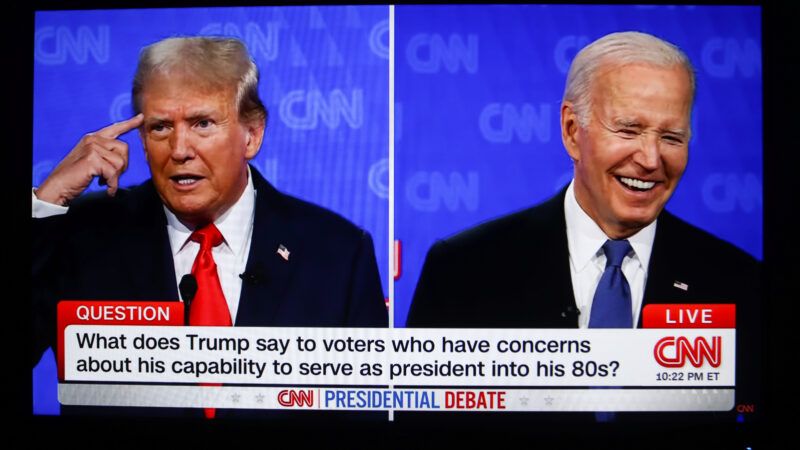How Much Does the President Matter?
We've now had two consecutive presidential administrations deploy versions of this same argument in response to questions about the fitness of the man allegedly running the federal government.

As President Joe Biden weighs whether to remain in the 2024 race, one of the defenses raised by the president's supporters is noteworthy—not just because of what it says about Biden's acuity but also because of what it says about the state of the modern presidency.
During an appearance on MSNBC earlier this week, former Obama administration official Jeh Johnson argued that, effectively, the election is about picking an administration, not a president.
"A presidency is more than just one man," Johnson told Joe Scarborough. "I would take Joe Biden at his worst day at age 86 so long as he has people around him like Avril Haines, Samantha Power, Gina Raimondo supporting him, over Donald Trump any day."
This is true, of course. Over 4 million people work in the federal government's executive branch, and only one of them is Joe Biden. Most are full-time, nonpolitical appointees, but each president gets to make about 4,000 appointments (including the roughly 1,200 positions requiring Senate confirmation). The presidency is obviously about more than one man.
Even so, it's interesting—and perhaps telling—that we've now had two consecutive presidential administrations deploy versions of this same argument in response to questions about the fitness of the man allegedly running the federal government.
During the Trump administration, Trump-skeptical Republicans frequently used a similar argument to justify supporting the then-president despite his obvious temperamental problems and general lack of interest in the minutia of policy making. It was about the judges he'd appoint. It was about the regulations that his executive branch appointees would undo. It was about the military leaders who would prevent him from doing something reckless.
Maybe the presidency is just the friends we made along the way?
The same argument is making the rounds in Republican circles during this campaign. "It is entirely possible to believe that Trump should not be president because he wants to act in a manner that is inconsistent with our Constitution, but that, if he does become president, he will fail to escape the system's core constraints," writes National Review's Charles Cooke, who is the epitome of a Trump-skeptical conservative. "To make this case is not to 'defend Trump,' but to profess confidence in the American model of government against those who would undermine it."
Whether as a way to constrain the worst impulses of a chaotic populist in the Oval Office or as a way to prop up a guy who needs to be in bed by 8 p.m., this line of argument makes strategic sense. It's meant to reassure voters that they can continue supporting the name on the top of the ticket even if they have misgivings about the president himself. Maybe Biden thinks that he "beat Medicare," but don't worry because there's someone more responsible actually running the program.
But this whole line of argument, while accurate, is notably in tension with how most modern presidential campaigns operate. They're all about the guy on top of the ticket.
Maybe that needs to change. We expect a president to name his or her running mate before the convention, but perhaps that expectation should be extended to other positions in the administration too.
That's not to say that Trump or Biden need to give us a list of 4,000 people they'd appoint if elected. But if the administration really is so much more than a single person, would it hurt for voters to have a better idea of who will be filling key posts—posts that, generally speaking, are more important than the vice presidency anyway?
That would provide more transparency and information for voters. It might also help to short-circuit the dangerous tendency to build cults of personality around presidents, which would be healthy for our democracy.
The modern presidency is obviously too big for any one person to completely run—and certainly well beyond the capabilities of Trump and Biden in their current states. We should be more willing to say as much.


Show Comments (109)